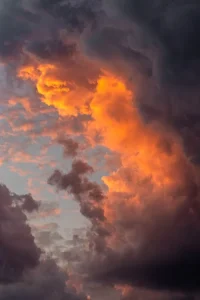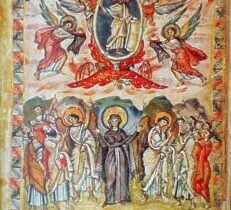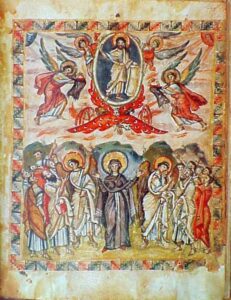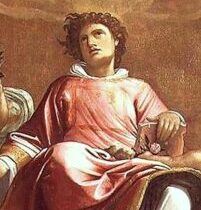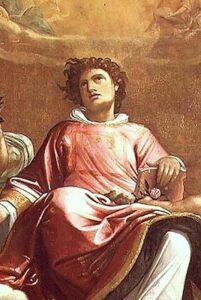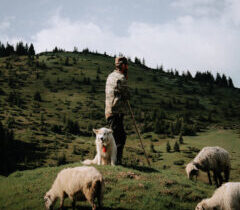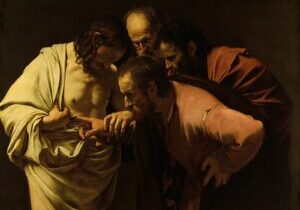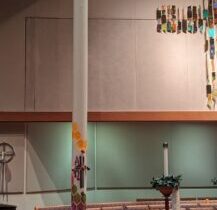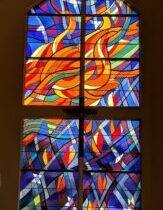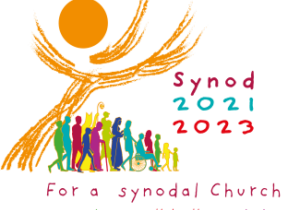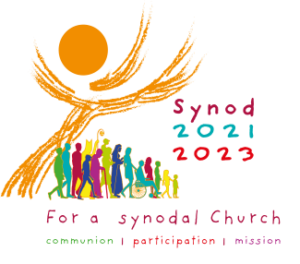Chop Wood, Carry Water
 An ancient Zen koan came to mind as I read the story of St. Paul’s return to Jerusalem after his encounter with Jesus on the road to Damascus. The koan is this:
An ancient Zen koan came to mind as I read the story of St. Paul’s return to Jerusalem after his encounter with Jesus on the road to Damascus. The koan is this:
Before enlightenment, chop wood, carry water. After enlightenment, chop wood, carry water.
People have been reflecting on this simple statement for centuries. It’s a statement of deep wisdom that we see play out in the lives of many within our own Christian tradition as well.
The man we know today as St. Paul began as a Pharisee named Saul. Saul was a highly educated man, born in the city of Tarsus in Asia Minor, trained as a tent-maker, and educated in Jewish Law in Jerusalem. He was a Roman citizen by birth.
Saul was deeply troubled by the teaching of Peter and the other followers of Jesus after the Resurrection. It was all blasphemy as far as he was concerned. He was the formal witness to the stoning of Stephen, the first of the Christian martyrs, and Saul absolutely approved of Stephen’s sentence. He was not converted by Stephen’s dying witness either. He set out to root out this heresy wherever it was found.
On his way to Damascus, he met Jesus on the road. He was blinded by the encounter and realized he had been totally wrong. Jesus sent him on to Damascus, where he was healed and taught by Ananias about Jesus and the new way of living in faith.
Not one to sit around twiddling his thumbs, Saul began to share what he had learned with the Jewish community in Damascus. His words were so effective that the leaders plotted to kill him. Eventually, he had to be lowered in a hamper from a window in the city wall that opened to the outside, to escape with his life. He returned then to Jerusalem.
In Jerusalem, the Christian community quite reasonably were afraid of him. This man had persecuted them relentlessly and now he wanted to join them? Not going to fall for that trap, no siree!
But Barnabas befriended him and introduced him to Peter and the other disciples. He explained what he had experienced and his faith in Jesus. He began speaking and teaching about his experience throughout Jerusalem, again arousing opposition.
Rather than let him get killed or spark renewed persecution, the Christian leaders decided to send him out of harm’s way. They took him down to the shore at the port of Caesarea and sent him back to his hometown, Tarsus. There he returned to his original trade, making tents. (Acts 9:26-31)
Before enlightenment, make tents. After enlightenment, make tents.
For the rest of his life, Saul, who came to be called by his Roman name, Paul, made tents. But the story didn’t end with making tents in Tarsus.
Eventually, Saul was called back to Jerusalem by the community’s leaders and commissioned, along with Barnabas, to travel out into the Gentile world of Asia Minor and share the Good News with Jewish communities there and with any others who were open to hear it. Thus began the great work of evangelization of the Gentiles for which St. Paul is known. Much of the Acts of the Apostles tells of Paul’s journeys and the communities he founded. Wherever he went, he taught about Jesus and made tents to help support himself and those who traveled with him.
What about the rest of us?
St. John tells us that one day Jesus told his disciples, “I am the true vine, and my Father is the vine grower.” Just as a vine grower prunes the vines regularly so they produce good fruit, so the Father works through the words of Jesus to prune his vines and prepare them to bear fruit. “I am the vine, you are the branches. Whoever remains in me and I in him will bear much fruit.” In our following of Jesus and living out his words of love and service to each other, we bear fruit for the vine grower. Our lives of loving service, joy, and peace with those we meet throughout our lives will draw others to belief and sharing in God’s life. (Jn 15:1-8)
Along the way, as we grow in faith and trust, we continue to do the everyday things of our vocations. We chop wood and carry water, as it were. When we start out, we may not really understand the importance of everyday activities to a life of faith and service. With God’s grace, we grow in understanding throughout our lives. Sometimes we are blessed with a deep awareness of God’s presence in our lives and activities. We are enlightened to God’s presence in the NOW of our lives. Then the awareness fades as we continue on our journey from one day to the next. We continue to chop wood and carry water.
As John reminded his community many years later, we are to “love not in word or speech but in deed and truth.” (1 Jn 3:18-24) Our daily activities, the chopping wood and carrying water of our daily responsibilities, are the place we find God. This is where we come to recognize the Spirit in our lives and trust that all will be well in the end. The wood will have been chopped and the water carried to where it needed to go.
Seasons are changing around the world. For some the warmer, sunnier days of spring and summer are coming. For others, it’s autumn and winter will be here all too soon. Wherever we are, we are called to do the everyday things of our vocations. But we are also called to remember the Lord, to speak to our Father, to seek the presence of the Spirit in those we meet. We cook, clean, bake, grow vegetables, preserve food, share it with others. We go to work or school and share love and friendship with those we meet there. We come together to celebrate Eucharist, to give thanks for all we have received and shared. We chop wood and carry water.
Readings for the Fifth Sunday of Easter – Cycle B
Read More







